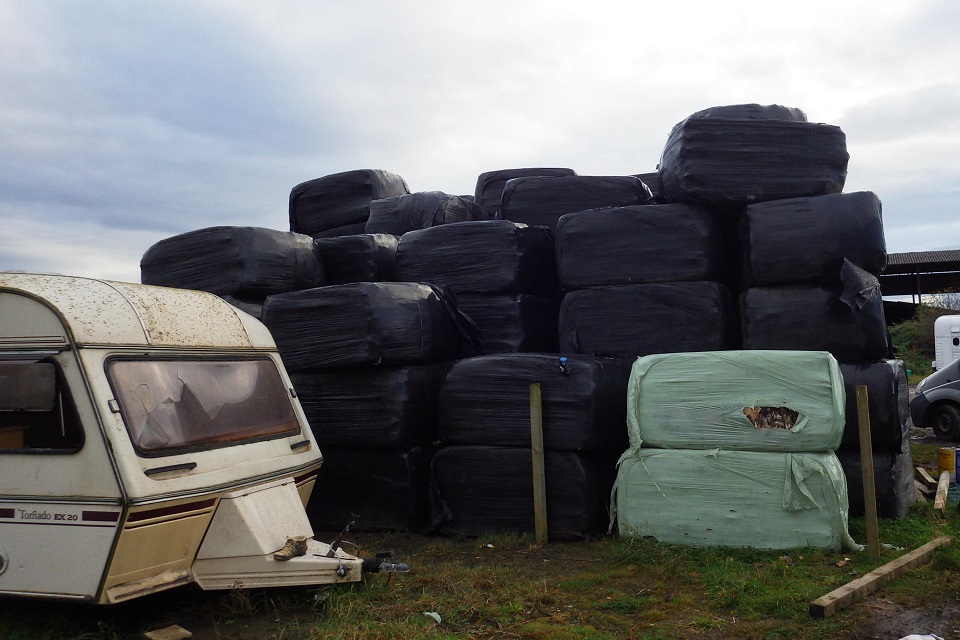Press release: Waste criminals dump £750,000 clean-up bill on landowners
Criminals who illegally dump thousands of tonnes of baled waste have cost land and property owners in the North East an estimated £750,000 in the last year, according to the Environment Agency.
The figure, which relates to the cost of removing waste dumped in fields and empty commercial properties lawfully, could be even higher if land is contaminated or insurance premiums rise as a result. Dumped waste is also a major fire risk.
In a bid to stop waste criminals in their tracks, the Environment Agency is reaching out to property and land owners, commercial property agents, trade associations and local authorities. Their aim is to warn of the dangers posed by waste criminals and advise them, their clients and their members how they can better protect themselves.
Jamie Fletcher, Area Environment Manager, from the Environment Agency said:
Waste criminals operate throughout the country, offering to remove waste cheaply and then dumping it in fields or empty warehouses. They tend to move to new areas as enforcement agencies become wise to their activities. We know it’s only a matter of time before they target us again so we’re sending out a strong message: Waste criminals are not welcome here and we’re doing everything in our power to deter and catch them.
We can’t do it alone. We work closely with partners to share intelligence on illegal waste activity. And we’re encouraging everyone to do their bit: for property and land owners to be vigilant and better protect themselves and for all businesses, organisations and individuals to manage their waste responsibly, preventing it from getting into criminal hands in the first place.
Land and property owners are advised to:
- Check any empty land and property regularly and make sure it is secure.
- Carry out rigorous checks on prospective and new tenants. Land and property owners have a responsibility to ensure anyone leasing their land/property complies with regulations. They may be committing an offence by allowing waste to be stored on land or property without the relevant permissions and could leave them liable to prosecution
- Be vigilant and report any unusual behaviour.

Advice for businesses
There are around 4,000 commercial properties across the North East thought to be empty, which are owned by up to 1,500 businesses and organisations, including fund management companies and local authorities.
The Environment Agency is also advising businesses and organisations of their responsibility to ensure their waste is managed appropriately. Anyone who produces, stores and manages waste is obligated to ensure waste does not cause harm to human health or pollution to the environment under waste under Duty of Care legislation.
Waste crime diverts as much as £1 billion per annum from legitimate business and the treasury. Since April 2011 the Environment Agency has invested £65.2 million nationally to address it. Its specialist crime unit uses intelligence to track and prosecute organised crime gangs involved in illegal waste activity and to ensure any necessary action is taken against them.
The Environment Agency also works with partners to share intelligence on illegal waste activity and to put in place contingency plans to reduce the risk from a small number of abandoned sites at risk of fire.
Anyone who sees waste crime taking place is advised not to approach as these people can be dangerous. Report it by calling our incident hotline on 0800 80 70 60 or anonymously to Crimestoppers on 0800 555 111.